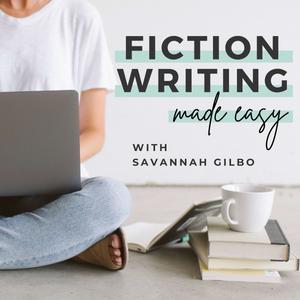
Fiction Writing Made Easy
Savannah Gilbo
How do I write a book? How do I create compelling characters that readers will love? How do I build a believable world for my story? What does it even mean to write a story that works? Do you have any writing tips? These are just some of the big questions that developmental editor and book coach, Savannah Gilbo, digs into on the Fiction Writing Made Easy Podcast. Each week, Savannah shares actionable tools, tips, and strategies that will help you write, edit, and publish your book. So, whether you're brand new to writing, or a seasoned author looking to improve your craft, this podcast is for you!
- 20 minutes 45 seconds#177. 3 Things You Need To Write Your Novel In 2025
Got writer's block and convinced it's because you lack talent? Think again! And I have the solution that'll change the way you approach your writing…
If you're struggling to finish your novel, I want you to know that your lack of progress has nothing to do with your capabilities or the quality of your ideas. In fact, it boils down to an imbalance of three essential things—or pillars of novel creation, if you will.
In this week's episode, I'm sharing what these three things are so you can overcome writing roadblocks and finish your novel in 2025.
These three things helped Jenny finish her draft in 6 months (after being stuck for 12 years) and gave Laura the confidence to move past self-doubt and finish her 83,000-word fantasy story.
Here’s what I talk about:
[03:43] Your secret roadmap to avoid the endless planning loop where you waste months (or even years) trying to make everything perfect.
[10:01] The most overlooked part of successfully writing a first draft, which many people ignore, and how to leverage it when self-doubt kicks in.
[15:36] The technical piece of the writing puzzle and why even beautiful prose won't help if the other two pieces aren't in place.
And so much more…
If you're ready to stop spinning your wheels and start making real progress on your story, grab your headphones, turn the volume up, and press play. This could be the writing breakthrough you've been waiting for.
🔗 Links mentioned in this episode:
- Click here to learn more about my signature program Notes to Novel™—and join us for the next LIVE cohort before doors close on January 30th, 2025.
- Ep. 88 - Perfectionism vs. Procrastination: What's REALLY Going On?
- Ep. 123 - How To Overcome The 5 Types Of Imposter Syndrome
- Ep. 134 - How To Stop Procrastinating: 5 Productivity Tips For Writers
⭐ Rate + Review + Follow on Apple Podcasts
"I love the Fiction Writing Made Easy podcast!" ← If that sounds like you, please consider rating and reviewing this show! Your rating and review will help other writers find this podcast, and they're also super fun for me to read. Just click here, scroll all the way to the bottom, tap five stars to rate the show, and then select "Write a Review." Be sure to let me know your favorite episodes, too!
Also, if you haven't done so already, make sure you're following the podcast! I'll be adding a bunch of bonus episodes to the feed, and if you're not following the show, there's a good chance you'll miss them. Click here to follow now!
My LIVE 8-week Notes to Novel course is officially OPEN for enrollment! Click here to learn more and enroll before doors close on January 30th at midnight PT!
👉 Looking for a transcript? If you’re listening on Apple Podcasts or Spotify, scroll down below the episode player until you see the transcript.
21 January 2025, 8:00 am - 33 minutes 29 seconds# 176. Student Spotlight: 5 Lessons Learned from Notes to Novel (Season 5)
See how Notes to Novel™ helped these five writers go from a blank page to a story that works (without the overwhelm).
With Notes to Novel™ (season 6) right around the corner, I'm bringing you something incredibly special today. I'm chatting with five amazing writers from season 5 about their experience inside the course.
And let me tell you, they're in the trenches right now, actively working on their novels. Some have finished their outlines, while others are deep in the drafting phase, and one has already completed her manuscript!
This is what we talk about:
[02:55] How Katherine finished the “cleanest draft” she’s ever written (at 72k words) in only 3 months—and then went on to edit that same draft in just 8 weeks
[09:47] How the Notes to Novel framework helped Kay stay focused on what *really* mattered in her story (and avoid chasing every new shiny object idea that popped into her head)
[15:27] What happened when I suggested one of my students, Danyel, eliminate one of her two point-of-view characters during one of our live Q&A calls
[21:35] How Harlow used her genre’s key scenes to create an outline (and why this made outlining much more approachable)
[27:47] And finally, how Madi wrote her first draft in 6 months (despite being a super busy mom of four)—plus her thoughts on the overall vibe and atmosphere of the group coaching aspect
So, if you’re feeling stuck, flustered, or unsure about your writing process, these 5 Notes to Novel students show you what's possible when you have the right tools and support. Enjoy the episode!
🔗 Links mentioned in this episode:
- Get on the Notes to Novel™ waitlist
- Katherine Varley’s website and Threads
- Kay Aprea’s Instagram
- Danyel Nicole’s website and Instagram
- Harlow Black’s Instagram
- Madison Unruh’s Instagram
⭐ Rate + Review + Follow on Apple Podcasts
"I love the Fiction Writing Made Easy podcast!" ← If that sounds like you, please consider rating and reviewing this show! Your rating and review will help other writers find this podcast, and they're also super fun for me to read. Just click here, scroll all the way to the bottom, tap five stars to rate the show, and then select "Write a Review." Be sure to let me know your favorite episodes, too!
Also, if you haven't done so already, make sure you're following the podcast! I'll be adding a bunch of bonus episodes to the feed, and if you're not following the show, there's a good chance you'll miss them. Click here to follow now!
My LIVE 8-week Notes to Novel course is officially OPEN for enrollment! Click here to learn more and enroll before doors close on January 30th at midnight PT!
👉 Looking for a transcript? If you’re listening on Apple Podcasts or Spotify, scroll down below the episode player until you see the transcript.
14 January 2025, 8:00 am - 31 minutes 56 seconds#175. 5 Easy Time Management Strategies To Write Your Novel Faster
Feel stuck writing your novel? These 5 time management strategies will squash all productivity blocks to get your story finished—finally (and fast).
Why does finding the time to write feel so hard sometimes? We often blame our busy schedules (and yes, that's definitely part of it). But there's something else lurking around that stops your writing progress. And it has a way of making you feel like you're failing at this whole writing thing. Which is so not true.
In this episode, I'm pulling back the curtain on this sneaky (and very hidden) productivity block that keeps tripping you up. Plus, I'm sharing 5 powerful time management strategies to squash this writing bottleneck so you can finish your novel in 2025.
You’ll hear me talk about things like:
[03:35] The hidden truth about "not enough time" that's actually blocking your writing progress (and how to fix it).
[06:04] A simple ‘chunking method’ that reduces writing overwhelm and turns your sessions into productive, dopamine-fueled wins.
[10:45] The editing habit that's stealing your momentum, and most writers don't see it coming.
[22:28] A fun way to outsmart your brain into showing up for your writing (hello, guilt-free rewards!)
[26:26] An energy-mapping trick that leverages your best creative flow state to get more writing done in less time.
And so much more…
You've got a story inside you that deserves to be told, and 2025 is your year to hold that finished novel in your hands. Whether it's your debut or your next book in a growing series—your writing journey is too important to let productivity barriers hold you back. You've got this, and I'm here to help.
Enjoy this episode, and make sure to grab your free time management guide in the links section below to start implementing these strategies today.
🔗 Links mentioned in this episode:
- Ep. 134 - How To Stop Procrastinating: 5 Productivity Tips For Writers
- Free Pomodoro Timer
- Grab the free Time Management Guide for authors here!
⭐ Rate + Review + Follow on Apple Podcasts
"I love the Fiction Writing Made Easy podcast!" ← If that sounds like you, please consider rating and reviewing this show! Your rating and review will help other writers find this podcast, and they're also super fun for me to read. Just click here, scroll all the way to the bottom, tap five stars to rate the show, and then select "Write a Review." Be sure to let me know your favorite episodes, too!
Also, if you haven't done so already, make sure you're following the podcast! I'll be adding a bunch of bonus episodes to the feed, and if you're not following the show, there's a good chance you'll miss them. Click here to follow now!
My LIVE 8-week Notes to Novel course is officially OPEN for enrollment! Click here to learn more and enroll before doors close on January 30th at midnight PT!
👉 Looking for a transcript? If you’re listening on Apple Podcasts or Spotify, scroll down below the episode player until you see the transcript.
7 January 2025, 8:00 am - 32 minutes 14 seconds#174. Counting Down The Best Writing Tips From FWME In 2024
The best writing advice sticks with us because it changes our thinking about our craft. In this special year-end episode, I'm counting down the top 10 most powerful tips from Fiction Writing Made Easy in 2024—from crafting sizzling character chemistry and developing compelling antagonists to building immersive story worlds and mastering your character's backstory.
Plus, learn how to overcome writer's block and tap into the power of the writing community to fuel your creative success. Let's celebrate the juicy nuggets that helped writers (like you) level up their storytelling this year.
In the episode, you’ll hear me talk about things like:
- [01:42] Mastering point of view fundamentals with Gabriela Pereira's "sphere of knowledge" technique—perfect for writers second-guessing their narrative perspective.
- [06:58] Learn how to create unforgettable ‘on-the-page’ chemistry and romantic tension with our in-depth analysis of the #1 New York Times bestseller Fourth Wing. Plus, I talk about the 3 sizzling ingredients that make readers fall head over heels in love with your characters.
- [08:54] Transform your story antagonist from flat to fascinating using the Harry Potter series as our guide. See how Voldemort's clear goals and plans create organic, gripping conflict that drives the entire story.
- [12:34] Break free from writer's block forever with April Davila's mindset-shifting strategy. Learn why this common creative obstacle might not be what you think—and how to overcome it.
- [18:36] Learn how to craft a story world that grows with your series, featuring examples from the #1 New York Times bestseller A Court of Thorns and Roses. Discover how your story world can evolve to create deeper story arcs and richer series development.
- [26:48] I'm so excited to share tip #1 with you. My chat with Save the Cat! expert Jessica Brody was your absolute favorite episode of 2024—and once you hear this perspective on story structure, you'll understand why. Trust me, this tip is a total game-changer.
And that's just a taste of our special year-end top 10 tip countdown. I'm so excited to share these writing tips with you—they're genuinely some of my favorites from this year!
So, cozy up with your favorite writing snacks, and let's celebrate the best writing advice of 2024 together.
⭐ Rate + Review + Follow on Apple Podcasts
"I love the Fiction Writing Made Easy podcast!" ← If that sounds like you, please consider rating and reviewing this show! Your rating and review will help other writers find this podcast, and they're also super fun for me to read. Just click here, scroll all the way to the bottom, tap five stars to rate the show, and then select "Write a Review." Be sure to let me know your favorite episodes, too!
Also, if you haven't done so already, make sure you're following the podcast! I'll be adding a bunch of bonus episodes to the feed, and if you're not following the show, there's a good chance you'll miss them. Click here to follow now!
My LIVE 8-week Notes to Novel course is officially OPEN for enrollment! Click here to learn more and enroll before doors close on January 30th at midnight PT!
👉 Looking for a transcript? If you’re listening on Apple Podcasts or Spotify, scroll down below the episode player until you see the transcript.
31 December 2024, 8:00 am - 26 minutes 31 seconds#173. 5 Mindset Tips For Revising Your First Draft
Is the thought of revising your first draft making you nauseous? I got you. These mindset tips will ease revision anxiety for good.
It's one thing to pour your heart into writing a first draft. However, facing revisions and sharing your story with others can feel raw, uncomfortable, and downright scary.
Not to worry. Every writer struggles with this novel writing phase, and that's why I've brought together four brilliant book coaches and editors to share their mindset wisdom to make the first draft revision process less scary and more exciting.
Here's what we talk about:
[02:48] Why you should absolutely love your "hot mess" first draft—it's exactly what it needs to be right now.
[08:01] The right (and wrong) people to ask for first draft feedback and how to prepare yourself emotionally for their response.
[12:40] A practical approach to handling hard-to-hear feedback so that it feels less personal and more purposeful.
[19:05] A unique 3-step revision process that transforms how you think about your first draft to turn it into a ‘must-read’ success.
[22:59] Why comparing your revision journey to other writers only holds you back—and what to focus on instead.
Tune into this episode to discover how to shift your mindset from revision fear to revision readiness. You'll walk away with practical strategies that make revisions less overwhelming, feedback less personal, and the entire process more purposeful.
And this is precisely what you need to turn your first draft into a story readers love.
🔗 Links mentioned in this episode:
- Stacy Frazer’s website and Instagram
- Michelle Regenold’s website and Instagram
- Leslie Horn’s website and YouTube
- Caryn DeVincenti’s website and Instagram
⭐ Rate + Review + Follow on Apple Podcasts
"I love the Fiction Writing Made Easy podcast!" ← If that sounds like you, please consider rating and reviewing this show! Your rating and review will help other writers find this podcast, and they're also super fun for me to read. Just click here, scroll all the way to the bottom, tap five stars to rate the show, and then select "Write a Review." Be sure to let me know your favorite episodes, too!
Also, if you haven't done so already, make sure you're following the podcast! I'll be adding a bunch of bonus episodes to the feed, and if you're not following the show, there's a good chance you'll miss them. Click here to follow now!
My LIVE 8-week Notes to Novel course is officially OPEN for enrollment! Click here to learn more and enroll before doors close on January 30th at midnight PT!
👉 Looking for a transcript? If you’re listening on Apple Podcasts or Spotify, scroll down below the episode player until you see the transcript.
24 December 2024, 8:00 am - 35 minutes 55 seconds#172. A Week in the Life: 7 Days Behind the Scenes with Savannah (December 2024)
Want a sneak peek into my life as a developmental editor and book coach? Listen in and find out what I do in my work week to help authors transform their story ideas into fully realized novels.
I'll walk you through what I'm learning, how I support fiction writers in finishing their novels, and my exciting plans for 2025. Plus, I'll share all the behind-the-scenes moments that make my book coach life so rewarding.
So, pour yourself a coffee (or matcha tea) and join me as I share:
[02:40] How the recording of my first audiobook is currently going and what I’m doing to keep my voice intact with all the talking.
[07:25] Why I pull out 12 blank calendar pages every December and how this simple planning ritual shapes my entire year ahead.
[10:15] What I learned working with two writers—a romance author and a sci-fi author—who started roughly at the same time but took completely different paths to reach the line editing phase simultaneously.
[22:42] Inside my final Notes To Novel coaching call and how these amazing writers have gained the confidence to take their ideas, turn them into outlines, and start writing noteworthy novels.
[27:10] The fascinating results from my annual listener survey shaping my 2025 content (Hint: you're in great company if you're still working on your debut novel or yet to start.)
Thanks for coming along on this journey with me! I love sharing little glimpses into my world with you.
Whether you're still simmering your first story idea or deep in revisions, I hope this behind-the-scenes peek gives you a real sense of my life as a developmental editor and book coach.
See you next week!
⭐ Rate + Review + Follow on Apple Podcasts
"I love the Fiction Writing Made Easy podcast!" ← If that sounds like you, please consider rating and reviewing this show! Your rating and review will help other writers find this podcast, and they're also super fun for me to read. Just click here, scroll all the way to the bottom, tap five stars to rate the show, and then select "Write a Review." Be sure to let me know your favorite episodes, too!
Also, if you haven't done so already, make sure you're following the podcast! I'll be adding a bunch of bonus episodes to the feed, and if you're not following the show, there's a good chance you'll miss them. Click here to follow now!
🔗 Links mentioned in this episode:
- Get on the waitlist for updates on The Story Grid Masterwork Analysis Guide to Harry Potter and the Chamber of Secrets here!
- Ep. 164 - Student Spotlight: Why She Ditched Her Agent And Self-Published Her Debut Novel With Stefanie Medrek
- Ep. 166 - Student Spotlight: How Jennifer Lauer Sold 5,000+ Copies of Her Debut Novel in 18 Months (Without a Massive Social Media Following)
My LIVE 8-week Notes to Novel course is officially OPEN for enrollment! Click here to learn more and enroll before doors close on January 30th at midnight PT!
👉 Looking for a transcript? If you’re listening on Apple Podcasts or Spotify, scroll down below the episode player until you see the transcript.
17 December 2024, 8:00 am - 23 minutes 57 seconds#171. How To Utilize Tone & Mood In Your Writing With Isobelle Lans
Need help with tone and mood in your novel writing? Maybe your scenes aren't hitting the right emotional notes, or your story atmosphere feels off. Today, we're breaking down four practical ways to master these tricky writing elements to keep your readers hooked.
In this episode, I'm chatting with Isobelle Lans, a UK-based author, editor, and writing coach who runs Inspired Creative Co. With years of experience helping writers develop their storytelling skills, Isobelle knows exactly how to break down tricky writing elements (like tone and mood) that often feel nebulous or hard to grasp.
Tune into this episode to hear us talk about the four essential techniques for mastering tone and mood in your writing. We talk about specific word choices that create the perfect atmosphere, the power of internal monologue, how setting plays a massive role, and sentence structure that strengthens your story's emotional impact.
In the episode, you’ll hear us talk about things like:- [02:21] The difference between tone and mood—Isobelle clears up the confusion between these two essential writing elements (and why understanding the difference will improve your storytelling).
- [03:40] Why do tone and mood matter for your novel genre? We share what happened when one romance writer got it wrong—and how you can get it right in your own novel.
- [05:01] Four brilliant ways to create a powerful, emotionally-driven atmosphere in your story. We dig into these hands-on techniques to help your readers feel precisely what you want them to feel.
- [13:00] When should you focus on tone and mood during the writing process? Isobelle explains whether this is a first draft problem or something to focus on in revisions.
- [17:09] The biggest tone and mood pitfalls Isobelle sees as an editor and writing coach. Plus, her straightforward advice to ensure your story delivers the emotional punch you're aiming for.
If you're ready to nail tone and mood in your writing, this episode is packed with practical techniques you can start using right away to keep your readers emotionally invested from start to finish.
⭐ Rate + Review + Follow on Apple Podcasts
"I love the Fiction Writing Made Easy podcast!" ← If that sounds like you, please consider rating and reviewing this show! Your rating and review will help other writers find this podcast, and they're also super fun for me to read. Just click here, scroll all the way to the bottom, tap five stars to rate the show, and then select "Write a Review." Be sure to let me know your favorite episodes, too!
Also, if you haven't done so already, make sure you're following the podcast! I'll be adding a bunch of bonus episodes to the feed, and if you're not following the show, there's a good chance you'll miss them. Click here to follow now!
🔗 Links mentioned in this episode:- Free Download: 10 Ways New Writers Can Enhance Their Storytelling
- Isobelle Lans at Inspired Creative Co
- Isobelle Lans
My LIVE 8-week Notes to Novel course is officially OPEN for enrollment! Click here to learn more and enroll before doors close on January 30th at midnight PT!
👉 Looking for a transcript? If you’re listening on Apple Podcasts or Spotify, scroll down below the episode player until you see the transcript.
10 December 2024, 8:00 am - 41 minutes 2 seconds#170. How To Pick Your Publishing Path With Nicole Meier
Whether you want complete creative freedom, better royalties, or a faster speed to market—get the clarity you need to choose the right publishing path for your novel.
Your novel is (or nearly) complete; now it's time to choose your publishing path. Whether you're drawn to big traditional publishing with major bookstore distribution, love the creative control of self-publishing, want bigger royalties with hybrid publishing, or are interested in the boutique experience of publishing through a small press, this episode will help you get clear on the perfect publishing path for you and your story.In this week's episode, I'm joined by Nicole Meier, an author turned developmental editor and book coach who brings a unique perspective to the publishing conversation. With four published novels under her belt—released through both traditional and hybrid publishers—Nicole knows firsthand what it takes to navigate the publishing world and make the choices that best serve you.
This is what we talk about…
[04:27] How to get clear on the publishing path that suits your values and needs instead of following what everyone thinks you should do.[10:28] A complete pro and con breakdown of traditional publishing, self-publishing, hybrid publishing, and small press publishing to help you make the right choice.
[17:01] The big publishing mistake most authors make without even realizing it and how to ensure it doesn't happen to you.
[28:46] What life after publishing looks like and why Nicole's first book became her readers' absolute favorite.
[32:31] A sneak peek reveal of Nicole’s brand new project that's going to make the fiction publishing journey so much easier for writers.
[33:26] Why building your author platform and book marketing matters more than ever when pitching agents and getting exposure.
⭐ Rate + Review + Follow on Apple Podcasts"I love the Fiction Writing Made Easy podcast!" ← If that sounds like you, please consider rating and reviewing this show! Your rating and review will help other writers find this podcast, and they're also super fun for me to read. Just click here, scroll all the way to the bottom, tap five stars to rate the show, and then select "Write a Review." Be sure to let me know your favorite episodes, too!
Also, if you haven't done so already, make sure you're following the podcast! I'll be adding a bunch of bonus episodes to the feed, and if you're not following the show, there's a good chance you'll miss them. Click here to follow now!
🔗 Links mentioned in this episode:
- Nicole Meier’s Website & Instagram
- Nicole’s Podcast Steps To Story
- BookWorks.co
My LIVE 8-week Notes to Novel course is officially OPEN for enrollment! Click here to learn more and enroll before doors close on January 30th at midnight PT!
👉 Looking for a transcript? If you’re listening on Apple Podcasts or Spotify, scroll down below the episode player until you see the transcript.
3 December 2024, 8:00 am - 33 minutes 12 seconds#169. 5 Tips To Help Neurodivergent Writers Finish Their Books
Finally, finish your book with effective writing strategies designed to work in harmony with your neurodivergent mind.
Does sitting down to write your book feel impossible on some days, while on other days, you can write for hours on end? Maybe you feel guilty whenever someone says, "Real writers write every day" or "Just stick to a routine,"—but here's the thing—your neurodivergent brain may not work that way. And that's totally okay.
In this episode, I've brought together four amazing writing coaches and book editors who either specialize in working with neurodivergent authors and ADHD writers or are neurodivergent themselves. And they’re here to share their best writing tips for finishing your book.
Even if you're not neurodivergent, you'll want to tune in because these writing strategies are pure gold.
Here’s what we talk about:
[02:55] How to tap into your natural neurodivergent energy cycles (from intense hyperfocus to foggy days) so that these energy cycles become your writing superpower.
[09:16] Why there's nothing wrong with your neurodivergent writing process just because it’s different from the standard writing advice (or what others say you should do.)
[16:08] What to do when writing suddenly feels impossible because your brain sees it as a demand instead of a choice.
[22:06] Discover the magic of having an accountability partner in your corner who understands your unique writing process and celebrates progress on your terms.
[27:57] Why breaking your writing time into small, manageable chunks can help you finally finish your book without the overwhelm.
Tune into this episode to discover how to write your book in a way that honors your neurodivergent mind, celebrates your unique creative rhythms, and turns writing rules into gentle guidelines that actually work for your brain.
⭐ Rate + Review + Follow on Apple Podcasts
"I love the Fiction Writing Made Easy podcast!" ← If that sounds like you, please consider rating and reviewing this show! Your rating and review will help other writers find this podcast, and they're also super fun for me to read. Just click here, scroll all the way to the bottom, tap five stars to rate the show, and then select "Write a Review." Be sure to let me know your favorite episodes, too!
Also, if you haven't done so already, make sure you're following the podcast! I'll be adding a bunch of bonus episodes to the feed, and if you're not following the show, there's a good chance you'll miss them. Click here to follow now!
🔗 Links mentioned in this episode:- Alyssa Pfingst’s Website
- Dani Abernathy’s Website & Instagram
- Georgina Green’s Website & Instagram
- Kerry Savage’s Website & Instagram
My LIVE 8-week Notes to Novel course is officially OPEN for enrollment! Click here to learn more and enroll before doors close on January 30th at midnight PT!
👉 Looking for a transcript? If you’re listening on Apple Podcasts or Spotify, scroll down below the episode player until you see the transcript.
26 November 2024, 8:00 am - 25 minutes 8 seconds#168. Women's Fiction vs. Romance: What's The Difference?
If you’re serious about becoming a published author, determining your novel’s genre is one of the most important things you’ll have to do. But sometimes that’s easier said than done, especially if your book toes the line between Women’s Fiction and Romance.
In this episode, I’m going to walk you through the difference between Women’s Fiction and Romance so you can write the best book possible and snag the attention of both agents and readers alike. You'll learn things like:
- [02:12] Five different ways to talk about the genre of your story (and why it’s so important to know where your book fits in the market)
- [04:18] How to tell the difference between Women’s Fiction and Romance—and why this difference really boils down to just one thing
- [07:53] The key characteristics of a Romance novel—including my thoughts on romance genre tropes and creating sizzling character chemistry
- [11:52] The defining traits of a Women’s Fiction novel (and how to develop your story’s plot when these stories tend to be so character-driven)
- [19:13] Episode recap and final thoughts
If you’ve ever struggled to understand the difference between Women’s Fiction and Romance, this is an episode you won’t want to miss!
⭐ Rate + Review + Follow on Apple Podcasts
"I love the Fiction Writing Made Easy podcast!" ← If that sounds like you, please consider rating and reviewing this show! Your rating and review will help other writers find this podcast, and they're also super fun for me to read. Just click here, scroll all the way to the bottom, tap five stars to rate the show, and then select "Write a Review." Be sure to let me know your favorite episodes, too!
Also, if you haven't done so already, make sure you're following the podcast! I'll be adding a bunch of bonus episodes to the feed, and if you're not following the show, there's a good chance you'll miss them. Click here to follow now!
🔗 Links mentioned in this episode:
- Download the Women’s Fiction vs. Romance Cheat Sheet
- Ep. 2 - Genre: The Key To Writing A Story That Works
- Ep. 23 - The 6 Key Scenes Every Romance Needs
- Ep. 38 - Romance Genre Conventions
- Ep. 46 - The 6 Scenes Every Worldview Novel Needs
- Ep. 25 - Worldview Genre Conventions
- Ep. 84 - The 6 Scenes Every Status Story Needs
- Ep. 70 - Status Genre Conventions
- Book Club Replay: Lessons In Chemistry by Bonnie Garmus
My LIVE 8-week Notes to Novel course is officially OPEN for enrollment! Click here to learn more and enroll before doors close on January 30th at midnight PT!
👉 Looking for a transcript? If you’re listening on Apple Podcasts or Spotify, scroll down below the episode player until you see the transcript.
19 November 2024, 8:00 am - 43 minutes 7 seconds#167. Why Marketing Matters From Day One With Lacy Lieffers
“When should I start marketing my book?” This is a question I get asked all the time! Along with other similar questions like, “Do I need to build an email list?” And “What are some effective ways to market my book?”
My guest, Lacy Lieffers of Black Fox Marketing, is here to answer all of these questions (and more) in this podcast episode! Tune into this episode to hear us talk about why marketing matters from day one, how to think about book marketing throughout the entire writing, editing, and publishing process, and so much more.
We’ll also cover things like:- [04:59] Why it’s important to start your book marketing efforts early—and how integrating marketing into your writing process from day one can set you up for long-term success
- [05:33] What to do if you feel overwhelmed by book marketing (and how to avoid spinning your wheels, wasting a bunch of time and money)
- [10:28] Lacy shares her thoughts on the age-old debate of growing your social media versus growing your email list and tells you exactly where to spend your time and energy to make the most impact
- [11:08] How to flip the script on what it means to work with book influencers (spoiler alert: stop making everything all about you!)
- [25:22] How to build your author brand in a way that resonates with readers and sets you (and your books) apart in a crowded market
- [33:52] A few of Lacy’s favorite tactics for creating buzz around your book (and later, driving sales during your book launch)
I LOVED this conversation with Lacy because she’s so knowledgeable and passionate about book marketing—and no wonder, with over 16 years of experience helping authors build their personal brands and market their books! If you’ve ever felt overwhelmed or uncertain about book marketing, you’re going to love this episode!
⭐ Rate + Review + Follow on Apple Podcasts
"I love the Fiction Writing Made Easy podcast!" ← If that sounds like you, please consider rating and reviewing this show! Your rating and review will help other writers find this podcast, and they're also super fun for me to read. Just click here, scroll all the way to the bottom, tap five stars to rate the show, and then select "Write a Review." Be sure to let me know your favorite episodes, too!
Also, if you haven't done so already, make sure you're following the podcast! I'll be adding a bunch of bonus episodes to the feed, and if you're not following the show, there's a good chance you'll miss them. Click here to follow now!
🔗 Links mentioned in this episode:My LIVE 8-week Notes to Novel course is officially OPEN for enrollment! Click here to learn more and enroll before doors close on January 30th at midnight PT!
👉 Looking for a transcript? If you’re listening on Apple Podcasts or Spotify, scroll down below the episode player until you see the transcript.
12 November 2024, 8:00 am - More Episodes? Get the App
Your feedback is valuable to us. Should you encounter any bugs, glitches, lack of functionality or other problems, please email us on [email protected] or join Moon.FM Telegram Group where you can talk directly to the dev team who are happy to answer any queries.
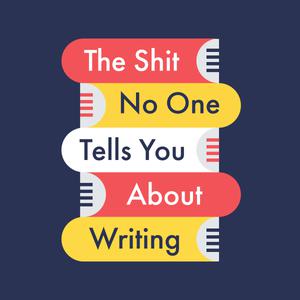 The Shit No One Tells You About Writing
The Shit No One Tells You About Writing
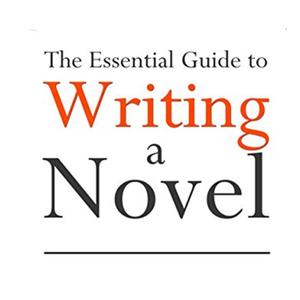 Essential Guide to Writing a Novel
Essential Guide to Writing a Novel
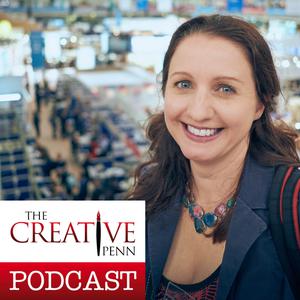 The Creative Penn Podcast For Writers
The Creative Penn Podcast For Writers
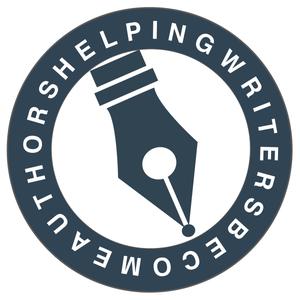 Helping Writers Become Authors
Helping Writers Become Authors
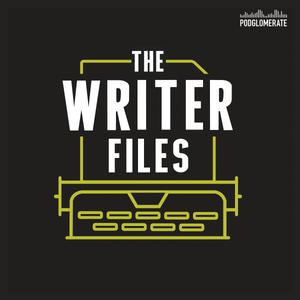 The Writer Files: Writing, Productivity, Creativity, and Neuroscience
The Writer Files: Writing, Productivity, Creativity, and Neuroscience
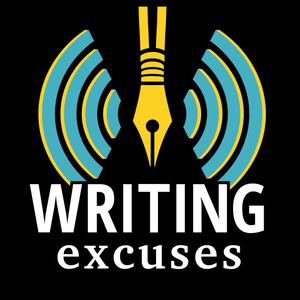 Writing Excuses
Writing Excuses